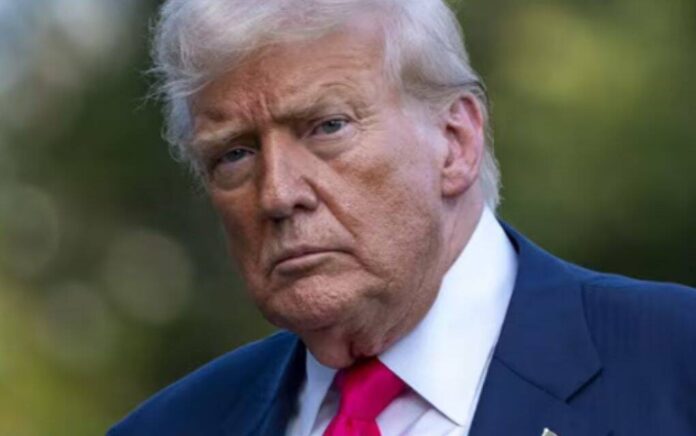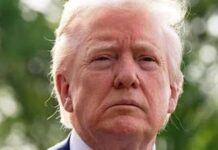
The Trump admin is working around the clock on campaign promises. Some federal government actors are getting in the way.
And now a federal judge has shared an eyebrow-raising response to a direct Trump order.
A federal judge is requesting additional details before ruling on the Trump administration’s motion to make public the grand jury testimony related to Jeffrey Epstein. In an order issued on Tuesday, Judge Richard Berman expressed his intent to decide swiftly but noted that the government must provide stronger legal reasoning and specify which transcripts should be disclosed.
Berman pointed out that the government’s initial filing did not cite exceptions to the standard rule keeping grand jury proceedings confidential, directing the administration to submit a 25-page memorandum by July 29 to address these points.
“In light of grand jury secrecy and victim-related issues and other personal identifying information concerns, the Government is directed to file, on the public record, a redacted version, and to file under seal the memorandum in redacted form,” he wrote.
Additionally, Berman called for input from Epstein’s representative and victims regarding their stance on the release of the testimony, with submissions due by August 5.
🚨 BREAKING: The court that AG Pam Bondi asked to unseal the Epstein grand jury files just issued its response.
The court says Bondi needs to give specifics, including the transcripts Bondi wants to unseal.
The court also needs statements from the victims who would be impacted… pic.twitter.com/sogdsYOZs1
— Eric Daugherty (@EricLDaugh) July 22, 2025
Why Millions of Americans Doubt Epstein Offed Himself
The death of Jeffrey Epstein in August 2019, officially ruled a suicide by hanging in a Manhattan jail cell, has fueled widespread skepticism among Americans. Polls conducted in the years following his death, including a 2019 Rasmussen Reports survey, found that over 50% of Americans questioned the official narrative, with many suspecting foul play. This distrust stems from a combination of Epstein’s high-profile connections, inconsistencies in the official account, and an erosion of confidence in institutional transparency.
Epstein’s ties to influential figures across politics, business, and entertainment have long been a focal point. As a financier and convicted s*x offender, he mingled with powerful individuals, including former presidents, royalty, and corporate moguls. These connections, detailed in court documents and media reports, have led many to speculate that his death was orchestrated to protect those implicated in his illicit activities. The notion that Epstein “knew too much” about elite networks has become a cornerstone of public suspicion.
He was found dead in his cell at the Metropolitan Correctional Center while awaiting trial on federal s*x trafficking charges. Reports later revealed lapses in protocol, including guards failing to check on him as required and the removal of his cellmate days prior. A 2019 New York Times article noted that the two guards assigned to monitor Epstein were asleep during the time of his death, raising questions about negligence or complicity.
Autopsy findings have also been a point of contention. While the official report concluded suicide, a forensic pathologist hired by Epstein’s brother, Dr. Michael Baden, argued in a 2019 CBS interview that the injuries to Epstein’s neck were more consistent with strangulation than hanging. This discrepancy has fueled theories that Epstein was murdered, with some pointing to the lack of definitive video evidence from the jail as suspicious.
The absence of transparency in the investigation has deepened public mistrust. The Department of Justice’s 2020 report on Epstein’s death acknowledged “serious irregularities” at the facility but upheld the suicide ruling. However, the failure to release full surveillance footage or provide detailed accounts of the night of his death has left many unconvinced. A 2021 YouGov poll showed that 52% of Americans believed it was unlikely Epstein k*lled himself, reflecting ongoing skepticism.
Epstein’s case also intersects with a decline in trust toward institutions. Decades of high-profile scandals, from government cover-ups to corporate malfeasance, have primed Americans to question official narratives. The Epstein saga, with its mix of wealth, power, and alleged criminality, fits into this pattern. Many view the official account as too convenient, especially given Epstein’s potential to expose influential figures through his trial.
Media coverage has both amplified and complicated public perceptions. While mainstream outlets like CNN and The Washington Post have largely supported the suicide ruling, alternative platforms and commentators have pushed narratives of conspiracy, often citing the phrase “Epstein didn’t k*ll himself” as a cultural meme. This phrase, popularized in 2019, has appeared in protests, online forums, and even mainstream media, reflecting widespread doubt.
The handling of Epstein’s case by authorities has also drawn scrutiny. His 2008 plea deal in Florida, which allowed him to serve just 13 months in a county jail for serious charges, is often cited as evidence of preferential treatment due to his connections. A 2020 Miami Herald investigation detailed how prosecutors, including former U.S. Attorney Alex Acosta, facilitated this lenient deal, fueling beliefs that Epstein was protected by powerful allies.
Victim testimonies have added another layer of complexity. Survivors of Epstein’s abuse, such as those who spoke in court filings and interviews, have described a network of enablers who shielded him from accountability. These accounts, covered extensively by outlets like The Guardian, suggest that Epstein’s influence extended into legal and political spheres, raising questions about whether his death was meant to silence him.
The lack of accountability for those connected to Epstein’s crimes has further entrenched skepticism. While his associate Ghislaine Maxwell was convicted in 2021 for s*x trafficking, few others have faced charges despite allegations of widespread involvement. This perceived impunity, as noted in a 2022 BBC report, has led many to believe that Epstein’s death was a convenient way to halt further revelations.
Public fascination with Epstein’s case also ties into cultural anxieties about inequality and justice. His wealth and access to elite circles symbolize a system where the powerful evade consequences. A 2023 Pew Research study found that 61% of Americans believe the justice system favors the wealthy, a sentiment that resonates with the Epstein case and fuels theories about his death.
Conspiracy theories, while often speculative, thrive in this environment of distrust. Some point to Epstein’s reported intelligence connections, as explored in a 2020 Vanity Fair article, suggesting he may have been targeted to prevent disclosures about espionage or blackmail. Though unproven, these theories gain traction due to the case’s unanswered questions.



















